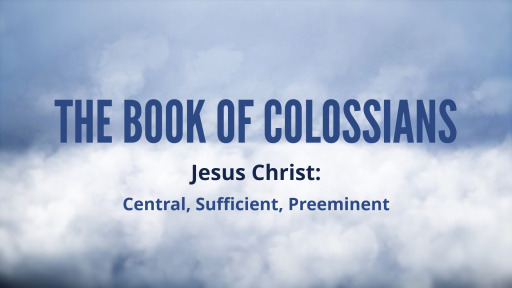The Book of Colossians

I. Introduction
Question #1- To whom was the letter written?
The diversity of population and exposure to the latest ideas via travelers on its major highway meant that Colossae was a place where many different religious and philosophical viewpoints thrived and probably mixed together. This diversity helps explain the apparently syncretistic religious movement that was affecting the Colossian Christians and that gave rise to the letter.
Epaphras’s reason for making this trip to visit Paul was almost certainly that he wanted to enlist the apostle’s help in dealing with a dangerous yet slippery variation on the Christian gospel that had arisen in the community. Paul writes to a community, then, that he has “grandfathered” through his “son,” Epaphras.
Question #2- Who wrote the letter?
Question #3- When was the letter written?
Philemon probably belonged to the church at Colossae, and Paul took advantage of the situation to address his other concern: the problem which Epaphras had discussed with him. Epaphras had earlier journeyed to Paul to help him in whatever way he could, representing the three churches of the Lycus valley. Further, since Onesimus and Tychicus had to travel through Ephesus to get to Colossae, Paul took advantage of the occasion to write to his good friends at Ephesus.
Question #4- Why was Colossians written?
The purpose of the letter, then, is to provide the resources that the Colossian Christians need to fend off some kind of false teaching to which they are exposed.
The false teachers were probably people from within the Colossian Christian community who were bragging about their ability to find ultimate spiritual “fulfillment” via their own program of visions and asceticism. This program was drawn partly from Judaism, particularly in its focus on rules about eating and observing certain days. They were preoccupied with spiritual beings, probably because they viewed them as powerful figures capable of having a significant influence on their lives.
The false teachers were appealing to spiritual beings, visions, and rules to find security in this very uncertain universe. In doing so, they were questioning the sufficiency of Christ.
Here is the essence of the false teaching: it is “not according to Christ” (2:8)
Any teaching that questions the sufficiency of Christ—not only for “initial” salvation but also for spiritual growth and ultimate salvation from judgment—falls under the massive christological critique of Colossians.
Any teaching that questions the sufficiency of Christ—not only for “initial” salvation but also for spiritual growth and ultimate salvation from judgment—falls under the massive christological critique of Colossians.